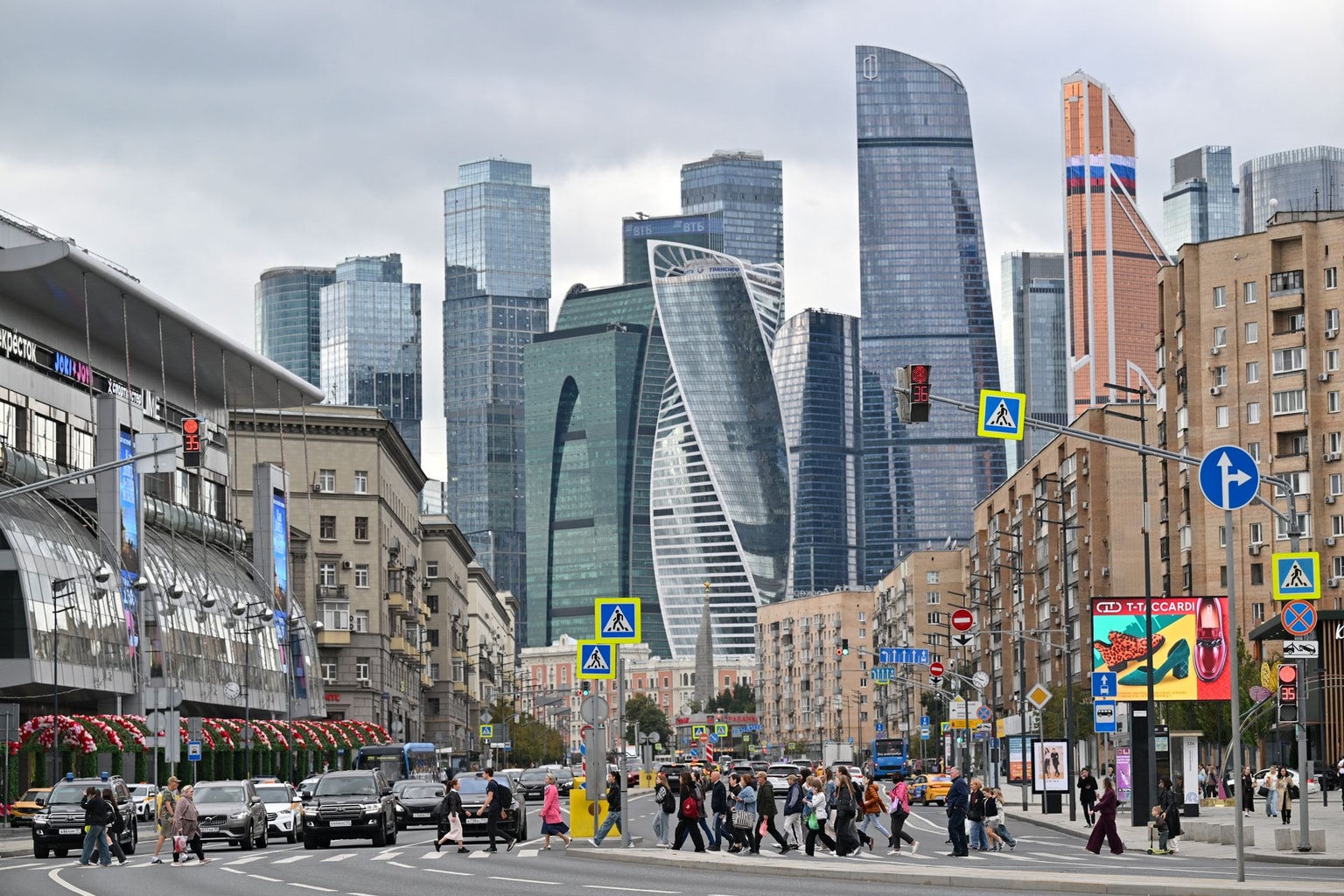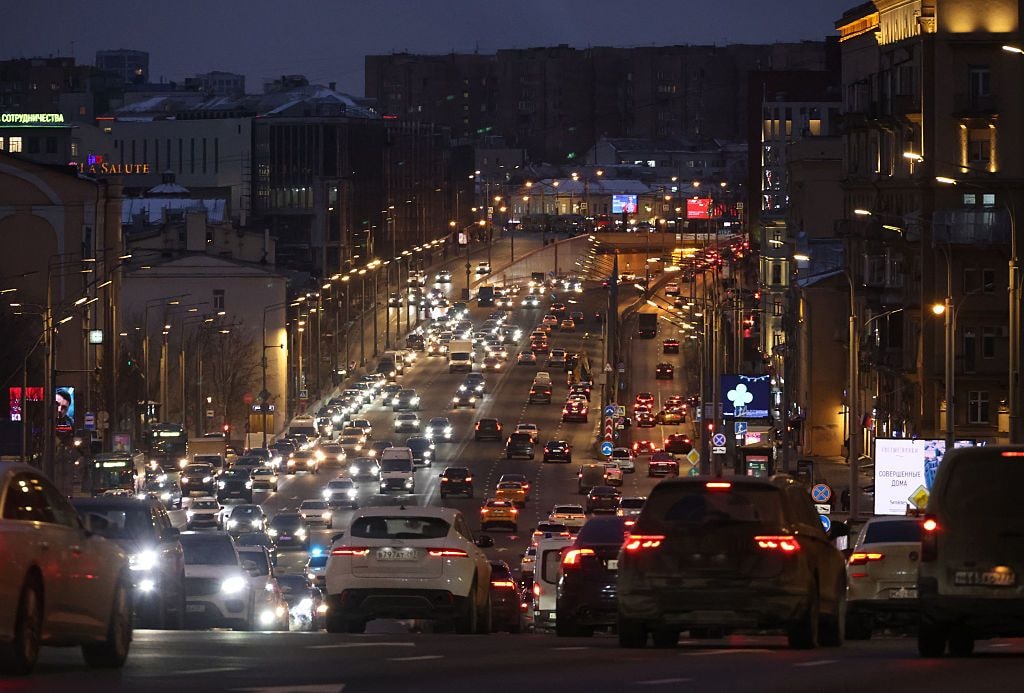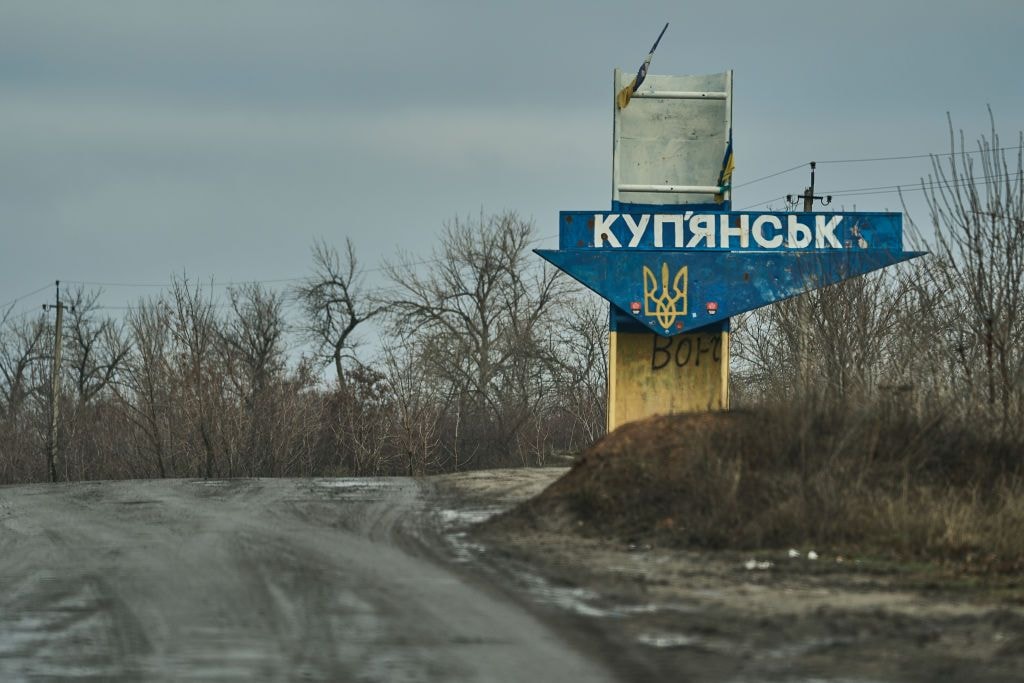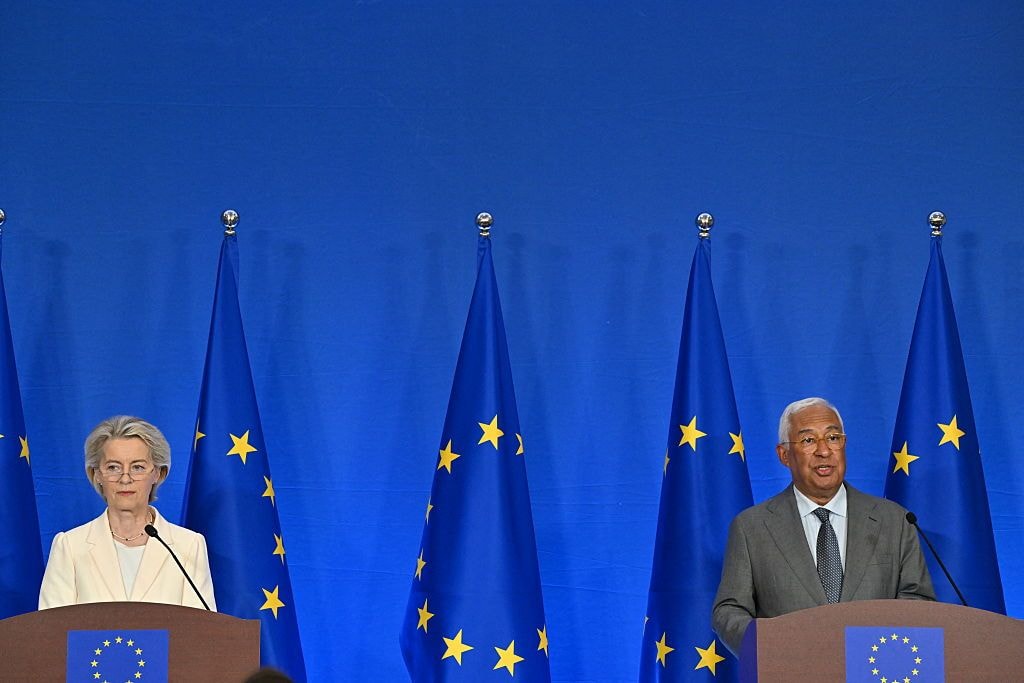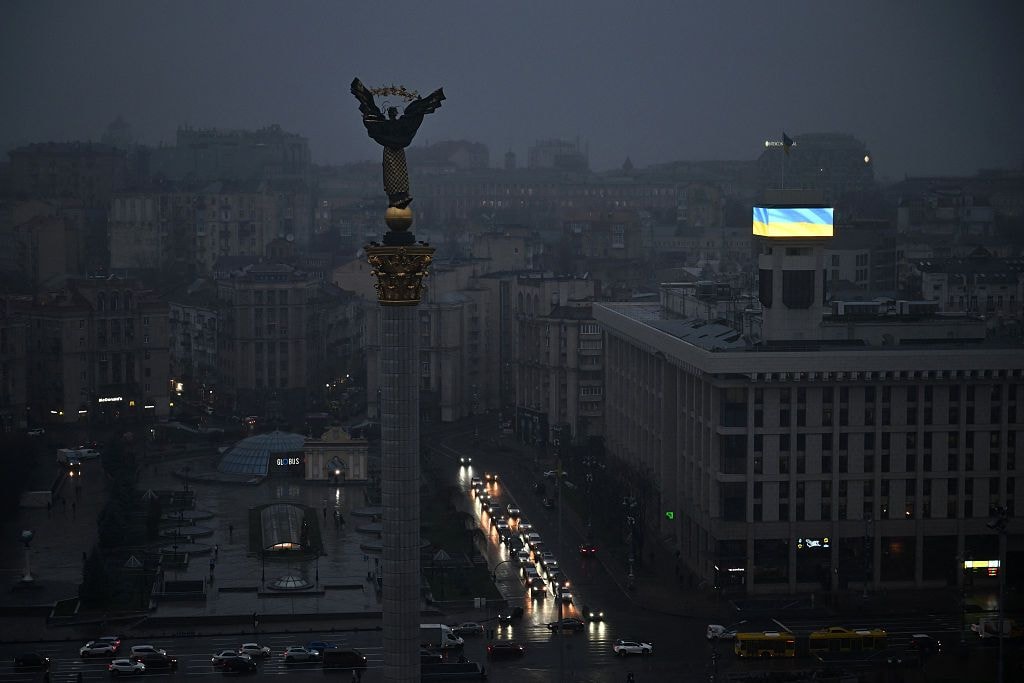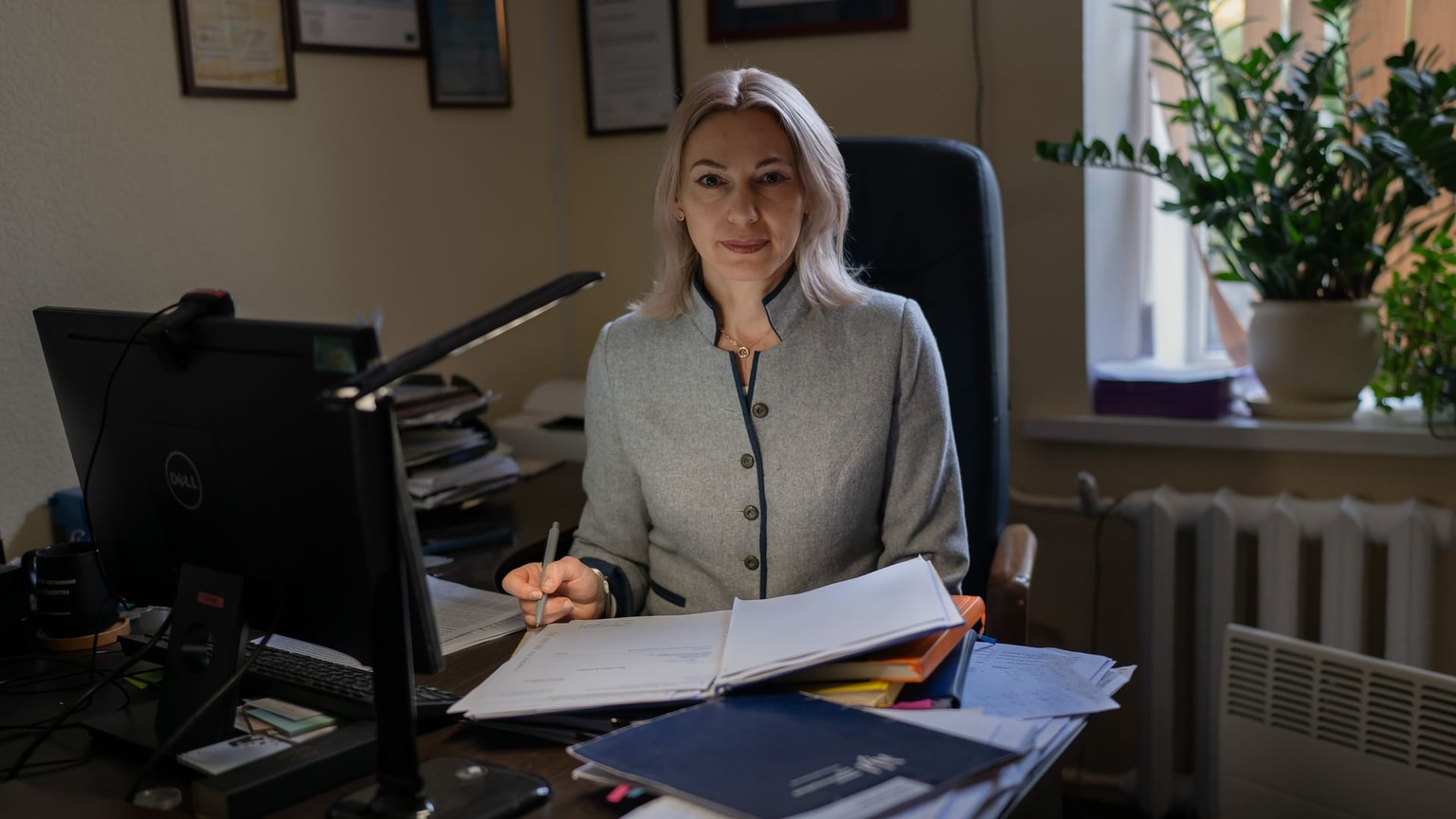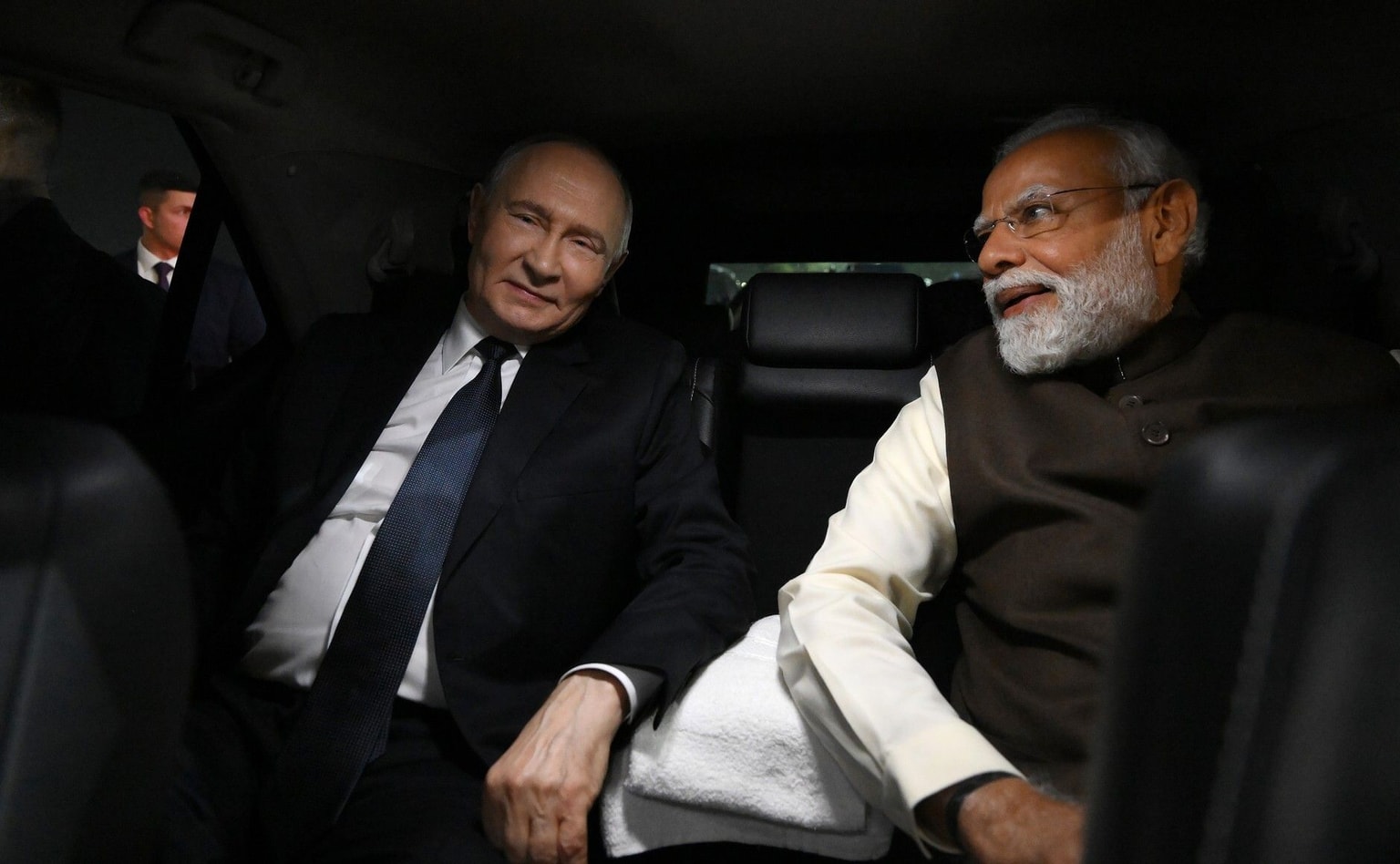
A Sword of Damocles once again hangs over Ukraine.
Since November, Russia has been amassing troops along Ukraine's eastern border, demanding sweeping concessions from the NATO alliance and threatening to plunge Ukraine back into Russia's sphere of influence once again.
Many Western experts and governments now fear military incursion by Russian forces into Ukraine, with the Washington Post now estimating that as many as 175,000 combat personnel are poised to invade Ukraine in early 2022, citing U.S. intelligence documents. On Jan. 28, U.S. President Joe Biden stated that it was a "distinct possibility" that Russia will invade Ukraine sometime in February.
Against this backdrop, the mood on the streets of Kyiv, for now, remains relatively calm. Daily life continues as normal, yet many foreigners are uncertain whether to remain or leave the country.
As the war of words grows over Ukraine, diplomatic pressure has increased on countries around the world to clarify their own contingency plans for their citizens living within Ukraine.
The situation in Ukraine is evolving quickly and advice issued by embassies can change within a day's notice.
Some nations, already fearing the worst, have already begun removing their embassy staff, drawing up evacuation plans, and making registers of their citizens. Others have taken a more relaxed approach, issuing advisory guidelines and words of warning.
Foreign citizens living in Ukraine should keep up to date with the latest information issued by their respective embassies. Here is a non-exhaustive list.
United States of America
The United States has so far issued the strictest guidance to its citizens, provoking anger from the Ukrainian government. On Jan. 23, the U.S embassy began to remove its non-essential embassy staff from Ukraine, and later advised citizens to leave the country.
The U.S. government advises American citizens to use available private transportation to leave the country, even offering repatriation loans and consular services to help facilitate their citizens' departure.
The Ukrainian Ministry of Foreign Affairs described the decision to remove embassy staff as “an instance of excessive caution.”
In a virtual town hall meeting organized by the U.S. embassy in Kyiv on Jan. 25, American expats were advised that Poland would not be accepting U.S. citizens via land crossings, ruling out their departure by buses or rail.
The U.S. position has changed radically compared to advice offered a few weeks ago.
A now deleted tweet by the U.S. embassy in Kyiv in December said that the U.S. government was “not currently considering evacuations of U.S. government personnel or American citizens from Ukraine,” instead just preparing basic contingency plans.
Ukraine is now classed by the U.S. Department of State as a level 4 (do not travel) destination. This assessment invalidates most traditional travel insurance policies issued outside of Ukraine.
All U.S. citizens, regardless of their intentions to remain or leave the country, are advised to fill out an online form in order to remain in contact with the U.S. embassy.
Emergency contact number (U.S. citizens only): +380445215566 (working hours) +380445215000 (after hours)
Address: A.I. Sikorsky St 4, 04112 Kyiv (Near Beresteiska metro)
United Kingdom
On Jan 24, the United Kingdom, following the lead of its American partners, also began to withdraw its non-essential embassy staff from Kyiv.
The British Foreign, Commonwealth, and Development Office (FCDO) now advises against “all but essential travel” to Ukraine, which also invalidates many British travel insurance policies.
The U.K embassy is now encouraging British citizens in Ukraine to “register their presence” in Ukraine via an online form, in order to help the embassy keep in contact in the event of further escalation.
As of yet, the U.K has not issued any further guidance advising its citizens to leave the country. The U.K warns citizens that they should be able to change their plans quickly and remain vigilant in Ukraine.
Emergency contact number (U.K citizens only): +380444903660
Address: Desyatynna St 9, 01001, Kyiv (Near Maidan Nezalezhnosti metro)
France
As of the time of publication, France has signaled that it intends to follow the policy of other European Union members. EU foreign policy chief Josep Borrel has stated that the EU does not intend to “dramatize” the situation in Ukraine, telling reporters in Brussels that he didn’t know of any “specific reasons” for the withdrawal of embassy staff or citizens from Ukraine.
In an email received by French citizens in Ukraine, which can be accessed by signing up to the “Registre des Français établis hors de France” (Register of French citizens resident outside of France), the French ambassador stated that the safety of French citizens is a priority for the embassy.
“I can assure you…that your situation is at the heart of thoughts and preoccupations,” the statement reads. “With the help of our Parisian colleagues from the crisis centre at the Quai D’Orsay, we have carried out various exercises so that our prevention and management tools are working perfectly in the case that we need to activate them.”
The email also advises citizens to register to email alerts from the embassy and to keep their French passports with them, as well as warm clothing and reserves of water and food.
Furthermore, the email encourages citizens to sign up to the Ariane portal, which allows French citizens to receive SMS communications, as well as numbers to call in times of crisis.
The French Ministry for Europe and Foreign Affairs reminds French citizens to remain vigilant and keep up to date with the latest advice offered by the French embassy and government.
Emergency contact number (French citizens only): +380503576584
Address: Reitarska St 39, 01901, Kyiv (Near Zoloti Vorota metro)
India
Each year, Ukraine’s universities attract thousands of Indian students. According to statistics from the Ukrainian State Center for International Education, in 2020 there were 76,548 foreign students in Ukraine, 18,095 of whom were from India.
The Indian embassy in Kyiv has not yet issued any concrete advice about the situation in Ukraine, however it has encouraged Indians in Ukraine to fill out a Google Form, where they can leave their contact information in order to be contacted by the embassy in the event of an escalation.
Foreign students, irrespective of their nationality, should keep in touch with their host universities. These institutions should be able to provide support to their students, including helping to organise emergency flights out of Ukraine, and assisting in contacting local embassies.
Emergency contact number (Indian citizens only): +380933559958
Address: Maxima Berlinskogo St 20-B, 04060, Kyiv (Near Syrets metro)
Netherlands
The government of the Netherlands currently classifies Ukraine (except the occupied territories of Donbas and Crimea) as “orange”. This means that the government officially advises against all travel to the region and encourages Dutch citizens to leave the country if they're there for non-essential reasons.
Dutch citizens are advised to register their stay in Ukraine with the Information Service of the Ministry of Foreign Affairs of the Netherlands. This will allow the embassy to send travel information and updates to their citizens.
In an FAQ posted to the website of the government of the Netherlands, the government has stated that its embassy is closely following the situation. Most significantly, the government warns that “the Ministry of Foreign Affairs cannot, or probably cannot, help (Dutch citizens)” if they get into trouble.
The advice of the Dutch government is likely to change on the basis of future recommendations from the European Union.
Emergency contact number (Dutch citizens only): +380444908200
Address: Kontraktova Ploshcha 7, 01901, Kyiv (Near Kontraktova Ploshcha metro)
Germany
German advice for travel to Ukraine has so far remained minimal. The German Ministry of Foreign Affairs only advises its citizens to reschedule unnecessary travel to Ukraine.
The German government asks Germans currently in Ukraine to sign up to the Federal Foreign Office’s “Crisis Prevention List”, which can be accessed here.
The advice of the German government is likely to change on the basis of future recommendations from the European Union.
Emergency contact number (German citizens only): +380442811100
Address: Bohdan Khmelnytsky 25, 01901, Kyiv
Australia
Similarly to the U.S, the Australian government is now advising its citizens to leave Ukraine, regardless of their status in the country. In a statement published to the Australian government Smartraveller website on Jan. 24, Australians were asked to “leave now by commercial means if it's safe to do so.”
Australian citizens can register the presence in Ukraine with DFAT, an online crisis management program run by the Australian government.
A Jan. 21 post on the Australian embassy’s Facebook page states that Australians should have plans in place to depart the country as quickly as possible, citing rapidly changing security conditions.
Australia has issued a “Do not travel” advisory for Ukraine, meaning that travel to the country can pose an “extreme risk” to health and safety. Official Australian advice states that Australians in “Do not travel” areas “could die”, and urges them to have an up-to-date will and power of attorney.
Emergency contact number (Australian citizens only): +61262613305
Address: Kostelna St 13A, 01901, Kyiv (Near Maidan Nezalezhnosti metro)
Canada
Unlike its southern neighbor, Canada has not yet begun to withdraw embassy staff or formally request that its citizens leave the country. Canada’s latest travel advice states that Canadians in Ukraine should evaluate whether their presence in the country is essential and avoid all-non essential travel to the region.
The Embassy of Canada to Ukraine has requested that Canadian expats and travelers sign up with the Registration of Canadians Abroad portal on the Canadian government website, so it can contact its citizens during an emergency.
Canada has issued advice for citizens who intend to remain in Ukraine. It urges Canadians to set up personal security plans, stay up to date with the latest news from the region from reputable new sources, locate nearest shelters and keep their travel documents up-to-date.
Emergency contact number (Canadian citizens only): +380445903100
Address: Kostelna St 13A, 01901, Kyiv (Near Maidan Nezalezhnosti metro)



